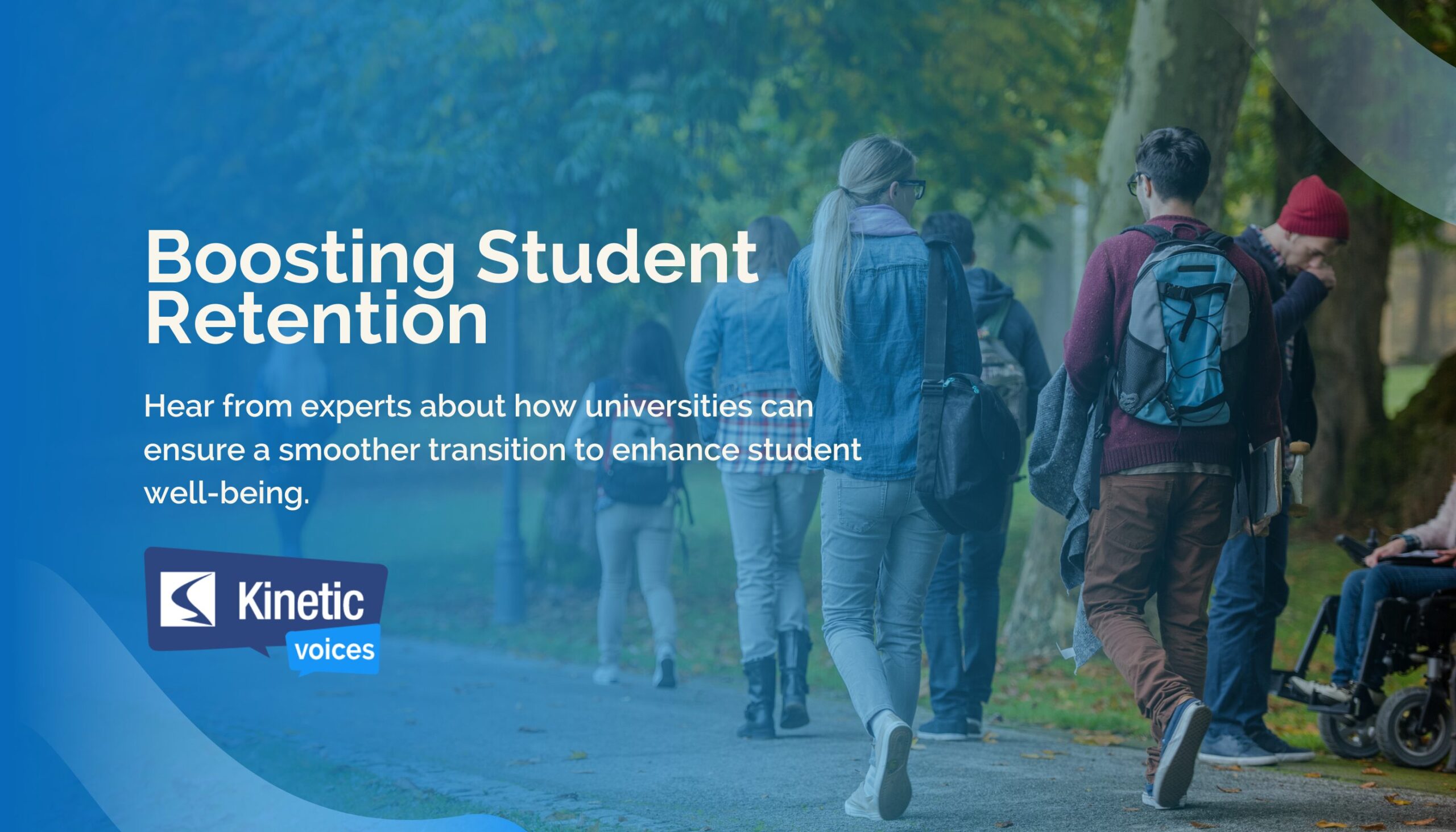As UK universities continue to prioritise student retention, the role of residential and support teams in enhancing student wellbeing has never been more essential. Universities are increasingly focusing on helping students transition smoothly from home to university life, ensuring a supportive environment from enrolment to graduation. But what does a truly holistic approach to student wellbeing look like, and how can institutions effectively integrate this into every stage of the student journey?
Understanding the Drop-Out Challenge
The first year at university traditionally carries a risk in terms of dropout levels. Data from the Higher Education Statistics Agency shows an average of 5.3% of students don’t continue into their second year at a cost to universities, students, the job market, the wider economy, and society.
Further signs of the toll on student life during the cost-of-living crisis were highlighted in studies, with one in four students saying they were less likely to complete their degrees due to financial pressures.
So, how are universities tackling the leaking pipeline of first-year students?
The Need for Enhanced Support
Higher education mental health expert Geraldine Dufour believes as a starting point that greater support is needed to counter the impact of external factors. Both school-age pupils with university ahead of them and students were affected in different ways over the last few years.
“When we went back, people were saying that the second years were just like freshers because they’ve not had the experience of being away from home, socialising and learning independence. So, there is an understanding that we must support people at every stage, and that is about giving skills to people working with students at every point of the student life cycle.”
– Géraldine Dufour
Multi-layered Approaches to Orientation
At Cardiff University, a comprehensive support package for first-year students includes trained peer mentors and study skills tuition. Before they arrive in Cardiff, students can download an orientation app that enables them to explore what the university offers. Relatability is key, and the App content is presented in part by current students. Additionally, there is a team of dedicated LGBTQ peer supporters who have been trained to talk to students about welfare. Finally, there is Student Connect, a frontline inquiry service both within the centre of Student life and online.
Cardiff University’s Former Director of Student Life, Ben Lewis, says:
“It’s a multi-layered approach, which I think is helpful both in terms of access to services, but I also think it does also help the university get more information out there and help people to get ahead of their needs.”
– Ben Lewis
“It is well known that the biggest dropout risk period is in the middle of the first term and then again after Christmas in the first year. Assuming the majority of first years are in residences, the Residence Life function is critical. Situations where there’s a risk of dropout, or somebody is unhappy can be escalated, and there is the option of delivering greater community building activity as well as trying to link that to community building on the academic side of things as well.”
– Ben Lewis
Meeting Complex Needs with Residential Teams
Simon Barlow ACIM CIHM, Residential Marketing and Communications Manager at Queen Mary University of London, says in practical terms the residential teams have taken on increasing workloads and are trained to flag individual issues.
“The level of work that residential teams are now dealing with in terms of volume and complexity goes far beyond what they were dealing with ten years ago. And that’s why the support networks we have in halls like maintenance, cleaners, security and reception teams, who are there 24/7, play a role in highlighting any concerns they have.”
– Simon Barlow
Simon believes that the application process has thrown a greater spotlight on the culture and support levels available. Welfare teams are present to meet potential students on open days while preparing 18-year-olds for university, which can include practical help and advice. Queen Mary has an online induction before students arrive, and the most-read item, reveals Simon, is about how to do a clothes wash.
“How we support our students to enable them to complete their studies, especially at the moment with the cost of living and challenge of having gone through the pandemic where people become more disconnected from support networks, is important.
– Simon Barlow
Balancing Diverse Student Needs
Géraldine stresses the importance of residential teams in fostering a supportive environment.
“Training for accommodation staff shows a remarkable level of mental health awareness. They strive to create a home-like atmosphere for students while managing a diverse range of needs—from those who enjoy socialising to those who prefer quieter surroundings.”
– Géraldine Dufour
With Journey to a Million, the UCAS prediction of a million applicants for higher education places by 2030, edging ever closer, the challenges universities face in widening access and supporting students are likely to intensify.
Looking Ahead
As competition for university places grows, universities like Cardiff and Queen Mary show the power of multi-layered support systems and inclusive approaches to student wellbeing. At Kinetic, we share this vision, providing solutions that enhance the student experience and create environments where students feel supported and empowered to thrive.
Student Life, our holistic well-being management solution, unifies departments, giving staff the tools to monitor, connect, and step in when students need it most. This proactive approach fosters a safer, more supportive campus life.
Meanwhile, KxEngage, our student app, helps students build community and access essential services, making university life smoother and more engaging from day one.
By focusing on student well-being with these tools, universities can reduce dropout rates and ensure students feel valued from enrollment to graduation. To learn more about how we can support your institution, contact your Customer Experience Manager or email customerexperience@kineticsoftware.com.






